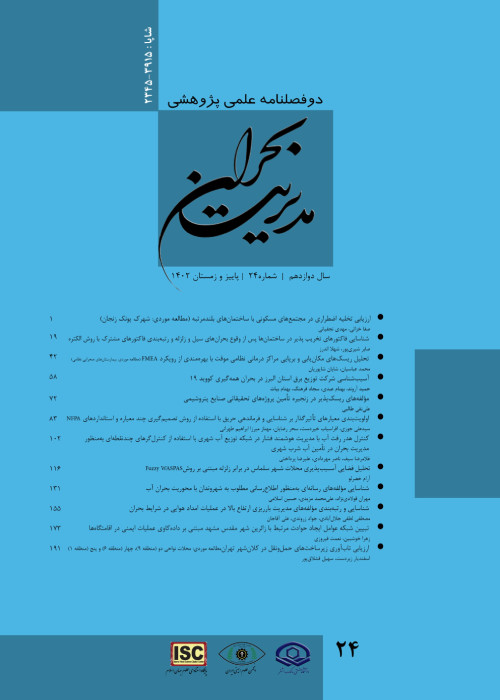Developing a model for knowledge management in crisis conditions (case study: Kermanshah earthquake)
One of the issues facing most of the world is the issue of natural and unnatural events that cause financial and life losses to individuals, organizations and societies.The earthquake that occurred in 2016 in Kermanshah is one of these incidents. It is important to make quick and correct decisions and execute operations due to the unexpectedness of these events, that this is possible by acquiring knowledge and experiences from these crises and documenting them and using these experiences and knowledge obtained in similar cases, in this way, we need a model in which the components of knowledge management that are effective on crisis management are identified in the stages before, during and after the crisis, and the extent of their influence on each other is determined. Therefore, this research was carried out with the aim of developing the knowledge management model in crisis. In order to develop this model, first of all, the components of knowledge management and crisis management appropriate to the earthquake crisis through literature study and review of various models of knowledge management and crisis management, field study in the earthquake-affected areas of Kermanshah and interviews with different people from the time of the earthquake in Kermanshah in 2016 to 2022 earthquake in Hormozgan have been identified And finally, 8 components and 22 sub-components have been extracted. Then, we have weighted these components and determined the relationships between them using the DNAP method (combined technique of Dimatel and ANP). At the end, according to the effectiveness and influence of knowledge management and crisis management components on each other, the final model was presented. Based on the results obtained from the model, the component of knowledge transfer and sharing and production and acquisition of knowledge in crisis conditions and the sub-components of identifying the processes of knowledge production and knowledge production from available sources, creating processes for absorbing knowledge and experiences of people has been the most important, Also, knowledge management components are effective in all stages of crisis management and help in effective crisis management.
- حق عضویت دریافتی صرف حمایت از نشریات عضو و نگهداری، تکمیل و توسعه مگیران میشود.
- پرداخت حق اشتراک و دانلود مقالات اجازه بازنشر آن در سایر رسانههای چاپی و دیجیتال را به کاربر نمیدهد.


